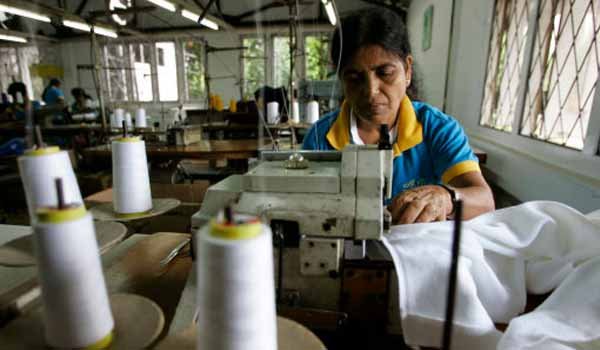Even the World Bank acknowledges that the post-war northern and eastern regions now account for some of the highest concentrations of both monetary and multidimensional poverty in the country. Indebtedness and food insecurity have been major concerns for quite some time. While deficiencies in post-war housing programmes have catalysed the former, the latter seems to be worsening. A forthcoming study by the Centre for Poverty Analysis (CEPA) found overall food insecurity (as measured by coping strategies) to have significantly worsened for over 1,000 households first surveyed in 2012. Exposure to drought and floods, loss of land, and deficiencies in irrigation and other critical infrastructure have undermined agriculture, while illegal Indian trawlers, weakening state support and declining yields have affected fishing.
Since the war ended, governments (past and present), donors, international agencies and most NGOs have focussed on restoring livelihoods in the North and East by promoting self-employment through provision of training and credit, especially micro-finance. Billions have been poured into livelihoods programmes. For example, the Central Bank disbursed loans worth 719 million LKR (approximately 4.9 million USD) and 1 billion LKR (approximately 6.8 million USD) in the North and the East respectively in 2014 alone.
But the neo-liberal strategy of making everyone an entrepreneur has not worked, and economic precariousness and indebtedness remain high. Privileging individualised micro-capital accumulation has been accompanied by privileging heavily subsidised private capital that thrives on precariousness—be it export-dependent garment factories or high-end tourism.
The North and East once had large strategic industries in the public sector that generated employment, catalysed local economic investments and fulfilled strategic national needs. These included the chemicals factory at Paranthan, the cement plants at Kankesanthurai, and the paper mills at Valaichchenai. Half-hearted attempts have been made to restart the last while reports have surfaced of the cement plants being asset stripped after the war.
What is needed is an effective restoration and expansion of the strategic industrialisation of the North and East. This calls for considered public and guided private investment that can revitalise the local and national economy and generate secure, decent and large-scale employment.
Another issue with a significant bearing on economic justice and precariousness is land. The focus of much of the work on this has been on “restitution” of land ownership and individual property rights, especially those occupied in the name of security or other purposes.
Important as this is, it is crucial to move away from a purely restorative approach to land toward one in which restoration is complemented by redistribution. This is even more important given the post-January 2015 regime’s markedly neoliberal approach to land, central to which is granting title and ownership to millions country-wide to promote a market-friendly land rights regime.
Land rights abstracted from broader political economic, agrarian and ecological entitlements carry the inherent danger of dispossession. This is especially the case when land is commodified rather than viewed as a vital productive resource, a commons and as embedded in gender, caste and class relations. In this respect, as much as South Africa or Bosnia, one should perhaps turn to the peace agreements in Guatemala and to a lesser extent in Nepal for principles that weld together the restorative and redistributive dimensions of land.
None are particularly successful but it is the principles underlying the latter, especially Guatemala, that are instructive because they recognise dispossession as a political economic process that cannot be reversed by restoration of property rights alone. Indeed, the re-opening in 2014 of land restitution claims in South Africa came precisely due to a failure to recognise this and ensure complementarity between restoration and redistribution.
Experiences from Latin America do show that reparations can encompass significant distributive measures. But this is a result of sustained mobilisation that combined demands for truth and accountability with demands for stronger redistributive policies in general.
Embracing ideas such as “transformative reparations” that articulate development, social policy and transitional justice without conflating them are vital to consider. A transformative approach to reparations seeks to alter broader conditions of exclusion, going beyond a selective and individuated restorative focus on the past or merely seeking equivalence between reparatory measures and harms.
The idea cannot be to just repair harms but to advance social justice and avoid creating hierarchies of harms or victims. A good place to start in Sri Lanka is to challenge the recently initiated “reforms” of the country’s welfare system to ensure they actually account for the specificities of war-related precariousness especially in the North and East.
A truth-first-reparations-later approach also suggests a fundamental misunderstanding regarding conditions of war and development. In Sri Lanka, development has often been war by other means. A failure to see this is why, at the moment, Sri Lanka’s transitional justice agenda offers virtually nothing to communities like the Up-Country Tamils, who have long been victims of war and development.
Non-recurrence, otherwise an enduring concern in transitional justice appears to be a non-issue when it comes to economic precariousness and distributive harms. Whenever questions of economic or distributive justice arise, the answer is often some variant of “transitional justice cannot deal with everything”. But who decides what transitional justice can and will deal with? How is it even ‘justice’ to prioritise truth and accountability but ignore everyday precariousness and the indignities of impoverishment?
(This piece is abstracted from a longer essay, co-authored with Chulani Kodikara, on the politics of transitional justice in Sri Lanka for a forthcoming edited volume.)
(Vijay K. Nagaraj - opendemocracy.net)






